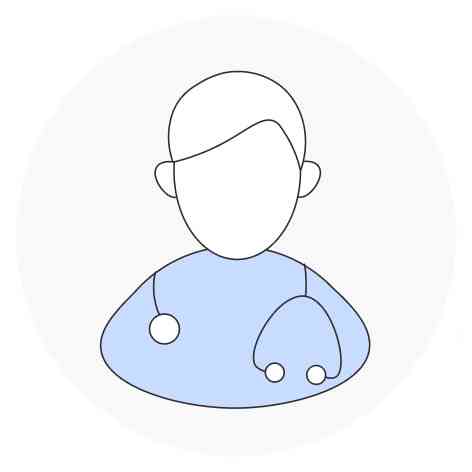Discover advanced Lung Disease surgery solutions to relieve pain and restore comfort. Our expert team specializes in minimally invasive procedures, ensuring effective treatment for corns and related foot conditions to improve your quality of life.
Book Your Free Second Opinion
30k+
Surgeries Done
50k+
Departments Treated
150k+
Conditions Treated
3k+
Specialist Doctors
200+
Cities
Lung Disease Introduction
The term "lung disease" encompasses various conditions that affect the normal functioning of the lungs. It refers to any issue or disorder that hinders the lungs in their crucial role of supplying oxygen to the body and removing carbon dioxide. Lung diseases can range from acute infections to chronic conditions, impacting both the structure and function of the respiratory system. Some common symptoms of lung disease include shortness of breath, coughing, chest pain, and difficulty breathing. These signs can vary depending on the specific type and severity of the lung condition. Timely diagnosis and treatment are essential to manage lung diseases effectively and prevent further complications. Understanding the underlying causes and risk factors associated with different lung diseases is key to promoting lung health and well-being. Respiratory illnesses can stem from various sources, such as smoking, air pollution, genetic factors, or occupational hazards. By addressing these contributing factors and adopting preventive measures, individuals can reduce their susceptibility to developing lung diseases and improve their respiratory function.
What You Get From MediBuddy
Get an Expert Second Opinion
Find Top Cashless Hospitals
Find Surgery Cost Estimate
Verify Insurance Coverage
Why MediBuddy For Health Care

Enhanced Quality of Care
Constant support, a network of premium hospitals and top-tier surgeons.

End-to-End Management
Your only focus should be to go and get your procedure done. Leave the rest to us.

Continuous Guidance
Any problem you may face will be resolved with one phone call.

Easy financing support
We bring you the best deals, EMI options without compromising on quality
Types Of Lung Diseases
Types of lung diseases can vary widely in terms of presentation, progression, and treatment. One significant type of lung disease is metastatic lung cancer. Metastatic lung cancer refers to a condition where the cancer originates in one lung and then spreads to the other lung or other organs of the body. This type of lung cancer is particularly challenging to treat compared to localized lung cancer. Treatment approaches for metastatic lung cancer often involve a combination of surgery, chemotherapy, radiation therapy, and targeted therapy, depending on the individual patient's condition and overall health status. Early detection and a comprehensive treatment plan are key in managing metastatic lung cancer effectively and improving the quality of life for affected individuals.
Stages Of Lung Diseases
Staging is a crucial aspect in determining the severity and progression of lung diseases. Specifically, lung cancer is staged based on various factors including tumor size, spread, and involvement of lymph nodes. The stages are categorized as follows: - Stage 0: In-situ, indicating that the cancer cells remain localized and have not spread to surrounding tissues or organs. - Stage I: The cancer is localized to the lungs and has not spread to lymph nodes or distant organs. - Stage II: The cancer may have spread to nearby lymph nodes, but is still contained within the lungs. - Stage III: The cancer has advanced to nearby tissues or lymph nodes, indicating a more aggressive stage of the disease. - Stage IV: The most advanced stage, where the cancer has spread to distant organs beyond the lungs. In addition to these stages, small cell lung cancer is further classified into limited or extensive stages based on the extent of cancer spread. This detailed staging system helps healthcare professionals determine the appropriate treatment plan and prognosis for individuals diagnosed with lung diseases.
Complications Of Lung Diseases
Complications of lung diseases can vary depending on the specific condition a person is experiencing. Some common complications associated with lung diseases include: 1. Respiratory infections: Lung diseases can weaken the immune system and make individuals more susceptible to respiratory infections such as pneumonia or bronchitis. 2. Pulmonary hypertension: Chronic lung conditions can lead to increased pressure in the arteries that supply blood to the lungs, causing pulmonary hypertension. 3. Respiratory failure: Severe lung diseases can progress to respiratory failure, where the lungs are unable to provide enough oxygen to the body or remove enough carbon dioxide. 4. Cor pulmonale: This is a condition where the right side of the heart becomes enlarged and strained due to long-term high blood pressure in the lungs, often caused by chronic lung disease. It is important for individuals with lung diseases to work closely with their healthcare providers to manage their condition and monitor for potential complications. Regular check-ups, following treatment plans, and lifestyle modifications can help in preventing or managing these complications effectively.
When To Seek Medical Help For Lung Diseases
When to Seek Medical Help for Lung Diseases: - If you experience persistent coughing that lasts for more than two weeks, accompanied by shortness of breath or chest pain, it is advisable to seek medical help. - Sudden onset of wheezing or coughing up blood should not be ignored, as these symptoms could indicate a serious underlying lung condition. - If you have a history of lung disease such as asthma, COPD, or pulmonary fibrosis, any new or worsening symptoms should prompt a visit to a healthcare provider. - Difficulty breathing, especially if it is interfering with daily activities or causing significant distress, warrants immediate medical attention. - Chest tightness, persistent fatigue, unexplained weight loss, or recurrent respiratory infections should also not be overlooked and should be discussed with a healthcare professional. Remember that early detection and treatment of lung diseases can significantly improve outcomes, so it is essential to seek timely medical help when experiencing concerning symptoms related to your lungs.
What To Expect During A Doctor'S Appointment For Lung Diseases
During a doctor's appointment for lung diseases, you can expect a comprehensive evaluation of your respiratory health. Here's what typically happens during such appointments: - Medical History Review: The doctor will ask you about your symptoms, medical history, family history of lung diseases, and any risk factors such as smoking or exposure to pollutants. - Physical Examination: A thorough physical exam will be conducted, including listening to your lungs with a stethoscope to check for abnormal sounds like crackles or wheezing. - Lung Function Tests: These tests, such as spirometry, measure how well your lungs are working. You may be asked to breathe into a machine to assess lung capacity, airflow, and how efficiently you exchange oxygen and carbon dioxide. - Additional Tests: Depending on the initial assessment, the doctor may order further tests like chest X-rays, CT scans, or blood tests to aid in diagnosis and monitoring of lung conditions. - Treatment Plan: After evaluating all test results and your overall health, the doctor will discuss a management plan tailored to your specific condition. This may include medication, pulmonary rehabilitation, lifestyle changes, or referrals to specialists if needed. - Education and Support: The doctor will provide information about your lung disease, how to manage symptoms, and strategies to optimize your respiratory health. Don't hesitate to ask any questions or seek clarification on any aspect of your condition.
Meet Our Doctors

Dr Sesha Sai
pulmanology
23 Years
Book Free Consultation

Dr Hareesh Pathak
pulmanology
22 Years
Book Free Consultation

Dr Gourav Nayak
pulmanology
15 Years
Book Free Consultation
Frequently asked questions


